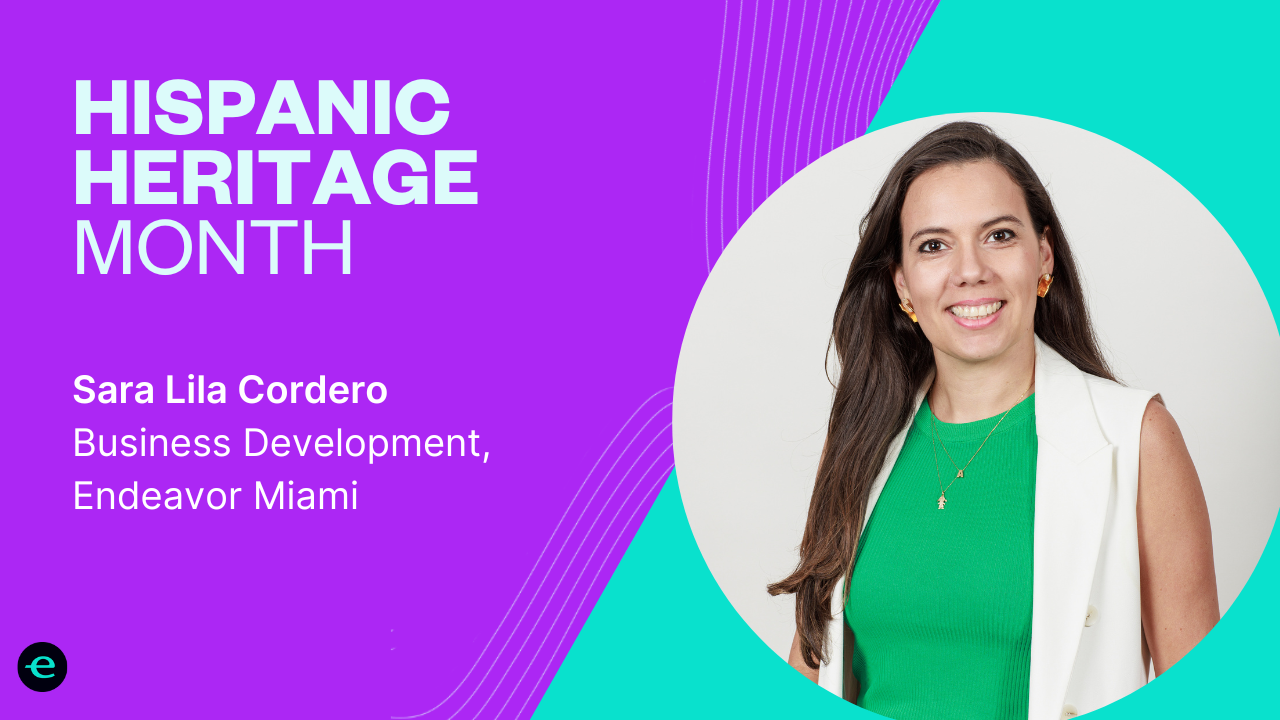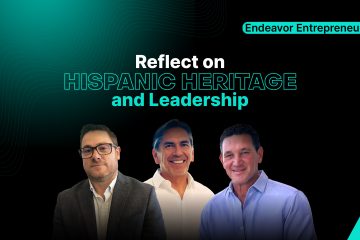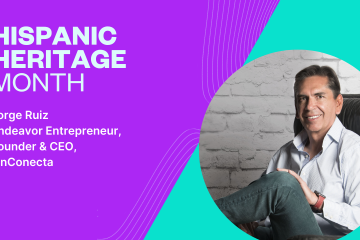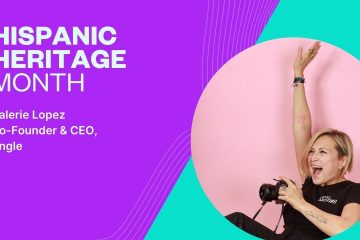This Hispanic Heritage Month, our Business Development Manager Sara Lila Cordero shares her insights her story supporting entrepreneurship and the importance of an ecosystem that encourages entrepreneurs to thrive.
Every time I lost a tooth growing up, I would get a voucher for my mom’s store. I would pick a toy and the next day the Ratón Pérez would bring my toy home. My mom sold educational toys and clothing for kids, an opportunity she saw in Nicaragua’s market in the early 90s. Later, my mom and grandmother opened a home decoration store, my aunt a jewelry shop, my uncle a supermarket, my youngest aunt a PR company, my grandfather an import company for industrial sewing equipment, and so on. All these businesses came out of opportunities they identified and a desire to give our family a better life.
Fast forward to my young adult life. Nicaragua ranked last in Latin America on the Global Entrepreneurship Index (2014). There was almost nothing in terms of entrepreneurship and startup initiatives. I wanted to do something for my country. So just like my family, I saw this opportunity and took it personally.
After spending some time earning my master’s degree and securing funding, I founded “La Fábrica”, a business incubator and coworking space in Managua. Our mission was to build a startup community and create awareness for a new way of thinking and doing business. Agile business, startups with the potential of scaling fast. The idea of pivoting and iterating, being client-oriented and finding ways to listen to your client and adapt quickly. Having the vision of using tech to solve real problems. So people would ask themselves instead of “How can I make money?”, “What problem can I solve and how can I solve it?” and then comes the money question. Starting lean and small, but starting to be able to try out your solution. The traditional way of doing business in our countries did not include any of these elements.
Soon after launching, our workshops and activities quickly filled up across the country. I had the privilege of meeting hundreds of students, founders, and future founders. They were very eager to learn, extremely resilient, and had the ability to do wonders with very few resources. However, they lacked two things: the guts to commit to conducting business in new ways and the resources to support them as they scaled their companies. Ongoing economic and political crises, a lack of funding and education, as well as a shortage of connections to networks made entrepreneurship a very daunting pursuit. Unfortunately, that is a situation that is all too common throughout Latin America.
I became more intentional about these issues, generating awareness and producing content to address them. Just when I started seeing some results, the national context got worse. Our main sources of income were from international supporters who were forced to leave the country due to the worsening situation.
After a few years of struggles and difficult conversations with myself, I decided to leave La Fábrica and Nicaragua in 2021. I understood that it was ok to put dreams or visions on hold, especially for your own well-being. However, entrepreneurship never left my heart. As I reflected on all my experiences, I found myself remembering my time studying emerging entrepreneurial ecosystems. If you are doing research on this, Endeavor will always come up, especially in Latin America. As I re-read case studies from Chile and Argentina, I found myself admiring the organization and realized it checked all my boxes. They had opened an office in Miami, and I saw it as an opportunity to learn from the gateway of the Americas. I connected with Endeavor Miami through a friend, Andres Robelo, founder of Playbypoint, a platform to schedule sportfields. He had participated in Endeavor ScaleUp and mentioned “You need to be with Endeavor if you want to be in the real game in Miami”. Through him I met Claudia Duran, Endeavor Miami’s Managing Director, and since conversation one, it seemed a natural fit.
Wasting no time, I joined Endeavor in October 2021 as the Business Development Manager. My goal: support the growth of Endeavor in Miami through partnerships and fundraising. I was excited to connect with a new, fast-growing ecosystem. I immediately met impressive companies led by a diverse range of founders with big visions. I once again met people who were eager to learn and grow. However, this time I saw a lot more self-confidence and an ecosystem that was considerably more eager to provide resources. These are founders that aim to have 3 million new users by the end of the year and raise multi-million dollar investment rounds over the course of a few weeks. It wasn’t that they were fearless but that they had the courage and support to pursue their dreams. I was inspired by all of this.
Earlier this year during The Venture City Summit, I had the joy of watching a Nicaraguan unicorn, Elias Torres Founder of Drift, who was participating as a panelist. The moderator asked him: “How do you manage your risks?” He answered: “When you come from having nothing, you have nothing to lose, only to win”. This resonates a lot with what I’ve seen throughout my career supporting entrepreneurship while being surrounded by founders from Latin America who had an admiring resilient attitude towards their business and life. Also, Endeavor Insights recently studied 200 unicorn companies – companies with a $1B+ valuation – with one of their many findings was that founders in emerging markets have different skill sets than their US counterparts and reach unicorn status faster. (Check out the full study here.)
However, “Queda mucha caña que moler.” We still have a lot to do. To merge the two worlds, we need to bring together the resilience, hard-working values, eagerness to grow, and resourcefulness from Latin America with the confidence, resources, and opportunities in the USA. Miami is a great gateway for this. The intentionality of initiatives like EndeavorLAB cohort for Latinx founders, Founder Familia, AWS for Latin Founders, and Google for Latin Founders, are a big help in merging these two worlds.
From being influenced by my entrepreneurial family to launching a Nicaraguan-based incubator, to moving to Miami and supporting diverse entrepreneurs from all over the world— I’ve realized that resilience, community and entrepreneurship are part of my Hispanic heritage. I’m privileged to be part of this, being a bridge to Latin Founders and opportunities. I hope to someday go home and implement all my new insights and experiences, this time not only for Nicaragua but for the entire region.



